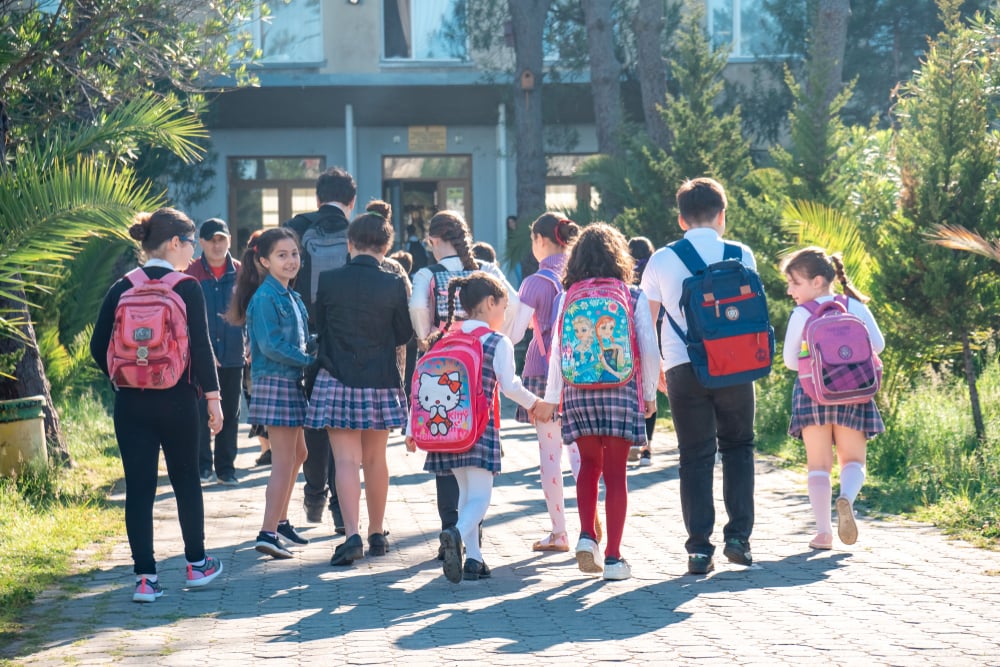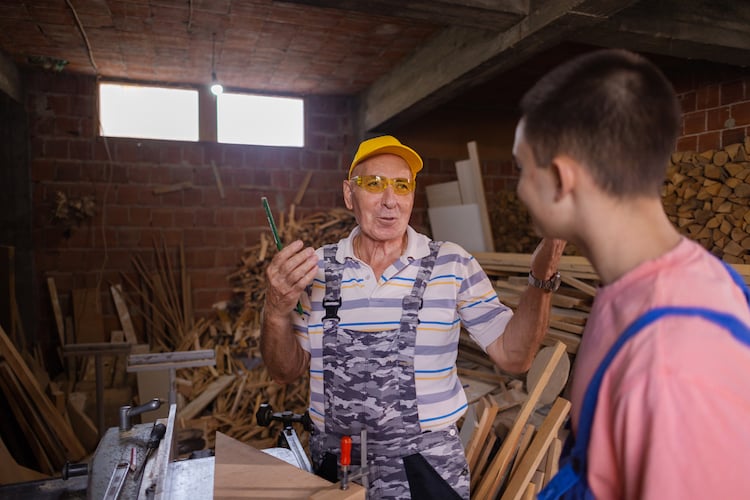Small towns are winning over city dwellers who are tired of noise, stress, and sky-high prices.

There’s a new kind of migration happening in America—and it’s not about chasing jobs or following trends. People who’ve spent years in high-rise apartments and traffic jams are quietly packing up and heading to places with fewer people, fewer rules, and way more breathing room.
It’s not just retirees, either. Remote workers, young families, and even entrepreneurs are falling in love with the slower pace, stronger sense of community, and the chance to actually afford a decent home. It’s a cultural shift that’s gaining serious momentum—and the reasons might surprise you.
1. You can actually afford to buy a home.

The dream of homeownership feels like a fantasy in big cities where a shoebox apartment can cost half a million bucks. In small towns, though, you might find a three-bedroom house with a yard for a fraction of that. It’s not just cheaper—it’s attainable, and for a lot of folks, that changes everything.
People are realizing they don’t have to sacrifice comfort or style, either. Charming historic homes, brand-new builds, and fixer-uppers full of potential are all on the market in smaller communities. Many small towns saw home prices grow slower than in big cities, making them more accessible for first-time buyers and downsizers alike, as reported by Julie Taylor at Realtor.com.
2. Work-from-anywhere jobs are making it possible.

Before remote work exploded, moving to a small town often meant giving up professional opportunities. Now? You can hop on Zoom from a cozy porch, knock out spreadsheets in your flannel pajamas, and never fight rush-hour traffic again. That’s not just convenient—it’s freeing.
The rise of hybrid and fully remote roles has given people a fresh perspective on where they actually want to live. Many workers are intentionally choosing scenic, quiet towns where they can enjoy life instead of enduring it, according to Laura Begley Bloom at Forbes. For them, small towns aren’t a compromise—they’re the goal.
3. You get more space and less noise.

In cities, space is a premium. Backyards are rare, neighbors are loud, and sirens are a regular part of the background soundtrack. Small towns offer the opposite: room to stretch out, a slower pace, and a much quieter lifestyle, as stated by Richard Conn at Spacebring.
Even something as simple as hearing crickets at night can feel like a revelation after years of honking and helicopters. People are craving environments that nourish their mental health and give them a break from overstimulation. That kind of peace is hard to put a price tag on.
4. There’s a real sense of community again.

In the city, you can live ten years in the same building and never learn your neighbor’s name. In a small town, you’ll probably know their dog’s name, too. Community events, local diners, and a culture of showing up for each other create a level of connection that’s deeply human.
People miss being known. They miss waving to familiar faces and having someone help shovel their driveway when it snows. In smaller towns, those acts of kindness and connection are part of everyday life—not exceptions. And for many, that makes up for the lack of nightlife or five-star dining.
5. You’re closer to nature without trying so hard.

Instead of booking a weekend getaway to “get outside,” small-town dwellers just… step out the door. Trails, lakes, forests, and wide-open skies are often minutes away. Nature isn’t a reward—it’s part of the daily rhythm.
This shift isn’t just about scenery. It’s about how people feel when they’re surrounded by trees instead of concrete. There’s more time to walk, breathe, and pause. That lifestyle can’t really be replicated in a 900-square-foot apartment with a rooftop garden and a city view.
6. People feel safer—physically and emotionally.

Big cities come with big energy, and sometimes that energy includes crime, traffic chaos, and general burnout. In smaller towns, people often feel safer walking at night or leaving their doors unlocked. That sense of calm matters, especially for families and older folks.
Emotional safety counts too. Small towns may be less anonymous, but that can work in your favor. Folks tend to watch out for each other and offer support when life gets hard. There’s something comforting about knowing you’re not just a face in the crowd.
7. Schools are smaller and often more personal.

When classrooms have fewer students, teachers can actually get to know the kids—and that matters. Parents in small towns often say they appreciate the tighter-knit school environments, where their kids are seen, supported, and less likely to slip through the cracks.
Of course, not every small-town school is perfect. But for many families, the trade-off of leaving a large, overburdened district for a slower-paced, community-focused education feels worth it. Kids walk to school, play outside more, and grow up knowing they’re part of something.
8. There’s less pressure to always be hustling.

In cities, the pace of life often feels like a treadmill you can’t get off. Everyone’s grinding, networking, side-hustling. In smaller towns, the hustle culture loosens its grip. People still work hard—but there’s also space to breathe, rest, and actually enjoy life.
That slower tempo isn’t laziness—it’s intentional. You can spend a Tuesday evening gardening instead of networking, or enjoy a Sunday without feeling like you’re falling behind. It’s a mental shift that’s drawing in folks who are done chasing someone else’s definition of success.
9. You can be a bigger fish in a smaller pond.

In cities, it can take years to get noticed or build a reputation. In a small town, your skills, passions, and contributions stand out faster. Whether you open a bakery or join the local arts council, your presence actually makes waves.
That visibility can lead to more meaningful roles in the community, new friendships, and unexpected opportunities. You’re not just one of thousands competing for attention—you’re someone people know, trust, and want to support.
10. Healthcare access is improving in rural areas.

There was a time when moving to a small town meant giving up easy access to good healthcare. That’s changing fast. Telemedicine, traveling specialists, and community clinics are making rural health care better and more accessible than ever.
For people with chronic conditions or aging parents, that’s huge. You might not have a major hospital ten minutes away, but you also won’t be stuck waiting three months for an appointment. It’s a new kind of balance—quality care, plus the wellness benefits of a quieter lifestyle.
11. You get to rediscover what matters most.

Stepping away from city life can give you the headspace to reevaluate your values. Suddenly, it’s not about the corner office, the trendy brunch spot, or how many followers you have. It’s about connection, simplicity, and doing things that actually make you happy.
In small towns, people are finding time to take up new hobbies, volunteer, reconnect with family, and even build businesses that reflect their values. It’s not just an escape—it’s a reset button. And more people are pressing it every day.
